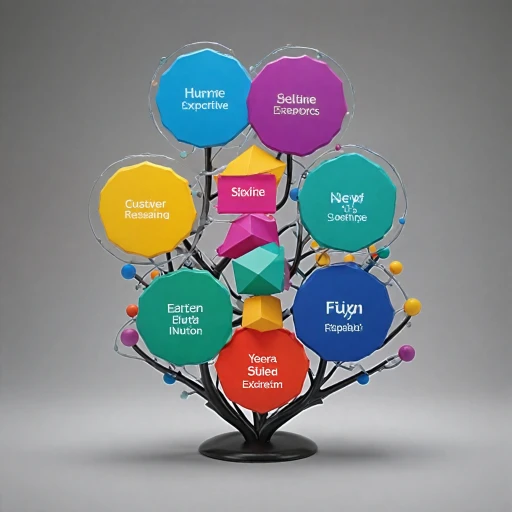
The Role of AI in Human Resources
AI Transformations in Human Resources
In recent years, the incorporation of artificial intelligence into human resources has sparked a revolution. Organizations now view AI not just as a tool but as an integral partner in various HR processes. AI systems are leveraged to analyze large volumes of data, providing insights that can streamline recruiting, employee management, and training. Employers rely on AI to manage public information relating to candidates and employees, enhancing the efficiency of recruitment processes.
With the ability to handle detail-oriented tasks, AI aids businesses in conducting thorough investigations of potential employees’ backgrounds. This often involves gathering information from various sources to identify any adverse information that might affect hiring or promotion decisions. By categorizing and analyzing adverse data, AI systems help in making more informed decisions without human biases.
However, the challenge arises when AI systems process information that includes adverse information which has not been accurately identified or flagged legally. As HR departments increasingly rely on AI systems, there is a growing need to ensure that the data used by these systems is verified and credible. Ensuring legal and ethical considerations in how this information is utilized can pose significant challenges.
As organizations continue to explore AI's potential, HR departments must balance the fine line between innovation and maintaining ethical standards. For more insights on the intersection of technology and regulations, explore how AI can influence HR processes like those outlined in understanding the duration of ADA leave.
What is Adverse Information?
Decoding Adverse Information
In the realm of human resources, adverse information plays a pivotal role in AI-driven processes. To thoroughly grasp its significance, it's vital to delineate what constitutes adverse information. Generally, adverse information refers to any data that may negatively affect the perception of an individual's qualifications or eligibility for specific opportunities within a business environment. Adverse information can be sourced from various public and legal channels, including credit reports, legal proceedings, or official public records available for investigation. Departments relying on AI systems often utilize this information to make informed decisions. However, without scrupulous oversight, adverse details can inadvertently sway outcomes, raising concerns over fairness and bias. The definition of adverse information is not limited to published records or those identifiable through formal investigations. It may also include feedback from former employers or users, complaints to relevant agencies, and remarks made on public forums. This broad scope encompasses any information that might portray someone negatively when assessed through an AI system. Crucially, the view that AI systems harbor on adverse information varies based on how these systems are programmed to interpret it. For instance, a department employing AI tools may base its evaluations on identified patterns, which, without proper checks, could inadvertently culminate in unfavorable assessments. Through understanding adverse information, HR professionals can better navigate these complexities and ensure fairness in AI-aided assessments. For more insights on how adverse information influences AI-driven HR processes, explore how AI aids in creating EEOC position statements.Implications of Adverse Information in AI Systems
Impact of Unfavorable Data on AI Systems
The integration of artificial intelligence in human resources has transformed processes, from talent acquisition to performance evaluations. However, the reliance on AI systems introduces challenges, particularly regarding how they process and act upon adverse information. This phrase, often referred to as "adverse information," involves data that can negatively influence decision-making processes, such as information relating to credit histories or any prior legal concerns.
Negative data can emerge from various sources, including public records, background checks, feedback from previous employers, and user-input data. When such information is included in the training datasets of AI models, it can profoundly affect the outcomes generated by these systems. Adverse information can lead to biases or even discriminatory practices that can affect both individuals and businesses.
Adverse information that AI systems encounter often includes data from official investigation reports or documentation from credit agencies. The interpretation and application of this information can pose a risk to the integrity of decision-making processes within HR departments. For example, an AI system sourcing adverse feedback about a person may categorize them negatively, impacting their employment opportunities unfairly.
Moreover, these AI systems could embed biases unintentionally. When these biases are entrenched in AI models, they might perpetuate negative outcomes without continual human oversight or intervention. The inclusion of representative data sources is crucial to minimize these risks. To view how these processes overlap and to understand the crucial role that effective leadership plays in mitigating these effects, see the responsibilities of a workforce integration manager here.
Ethical Considerations and Challenges
Ethics and the Human Aspect of AI in HR
When integrating artificial intelligence into HR systems, one of the most pressing concerns is ensuring ethical use, particularly concerning adverse information. But what exactly does adverse information entail in this context? Essentially, it refers to any negative data that could unfairly impact a person's evaluation within an organization. This could include information relating to past credit issues, public records, or investigations referenced during hiring processes. The use of AI systems in HR can inadvertently lead to ethical challenges. Due to the automated nature of AI, there is a risk of negative bias when processing adverse information about potential employees. This can stem from data gathered from various sources, some of which might not even be relevant or accurate. For example, a person’s credit history might be identified and unfairly weighted in decision-making processes, despite not being pertinent to their job performance. Moreover, ethical concerns arise when user feedback points to AI systems inadvertently discriminating against certain groups or individuals. Businesses and HR departments must be aware that adverse information can lead to biases against people who might have unsubstantiated negative feedback or public legal issues that are irrelevant to their job capabilities. An additional challenge is safeguarding the privacy rights of individuals. When personal data from credit agencies or public records are incorporated into AI systems, the individual's consent and awareness become crucial. Without clear consent, this practice can violate privacy laws and ethical standards. The solution involves developing strong ethical frameworks and practices surrounding the use of AI in HR. This should include robust training for personnel responsible for managing these systems, ensuring they understand the impact and definition of adverse information in their processes. By adopting a conscientious approach to incorporating AI, companies can maintain their responsibility to treat all candidates and employees with fairness and respect. Finally, regular audits and real-time reviews can help ensure that systems function without undue bias and adhere to established ethical standards.Strategies for Mitigating Negative Impacts
Approaches to Reduce Adverse Impacts
Incorporating artificial intelligence in human resources comes with its own set of challenges, especially when dealing with adverse information. To mitigate its potential negative impacts, organizations need to be strategic. Here are some key strategies:- Regular Data Audits: Conducting frequent audits to identify adverse data can help ensure that the information feeding AI systems is accurate and unbiased. This is crucial in maintaining the integrity of decision-making processes, preventing public relation mishaps and potential legal issues.
- Transparent Data Sources: Providing visibility into the sources from which data is extracted is imperative. This transparency, extended to both internal departments and external agencies, allows businesses to view how data is gathered and utilized, promoting ethical data practices.
- User Feedback Mechanisms: Establishing systems where feedback from users, including candidates and HR professionals, is regularly collected and reviewed can help in pinpointing inefficiencies and errors related to adverse data. This information gathering is pivotal in refining algorithms and improving results.
- Legal and Ethical Training: Ensuring that all personnel involved with AI systems understand the legal ramifications of dealing with adverse information and data use is essential. Institutions need to provide comprehensive training on ethical standards and legal compliance to prevent misuse.
- AI System Maintenance: Just like any other business tool, AI systems require regular updates and maintenance. This includes revising algorithms and definitions of adverse information to align with the latest guidelines. Timely updates ensure the effectiveness and legality of the information processing.
Future Trends in AI and HR
Projected Developments and Their Influence on HR
As artificial intelligence continues to evolve, its integration within human resources is poised for significant advancements. Key future trends in AI for HR will involve enhanced capabilities in processing and analyzing vast volumes of information, much of which will be influenced by both positive and adverse data.
Businesses will likely invest in more sophisticated systems that can better detect and interpret adverse information, allowing departments to make more informed decisions. This includes a focus on refining the definition and processing of such information to ensure it aligns with legal and ethical standards.
Another area of growth will be in developing AI systems that enhance transparency and accountability. HR professionals will need systems that offer a clear view of how their decisions are influenced by AI, specifically regarding any potential biases introduced by adverse data. Public feedback and partnerships with official regulatory agencies will become crucial as background investigations are conducted more frequently with AI assistance.
Finally, the role of AI in promoting diversity within organizations is expected to expand. Future systems should aim to include diverse information sources to mitigate biases when identifying talent. Ensuring ethical implementation will remain a challenge, one that requires continuous user education and feedback to adapt as AI technologies evolve.













